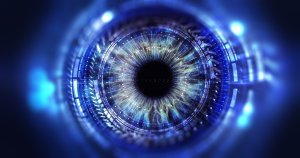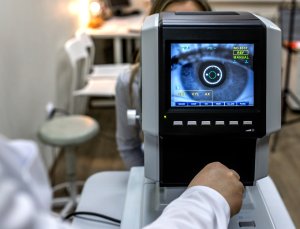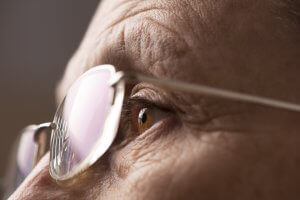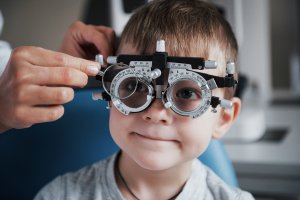Macular Degeneration Treatment in Muhlenberg Township, PA

Voted Best of Berks—
eight years in a row!
Macular degeneration can profoundly impact daily life, making it difficult to perform simple tasks like reading or recognizing faces. Understanding this condition and seeking early treatment is essential to maintaining your vision. For those in Muhlenberg Township, PA, Eye Consultants of Pennsylvania provides expert care with advanced treatment options to help manage macular degeneration and protect your sight.
Dry vs. Wet Macular Degeneration
Macular degeneration is an eye condition that affects the macula, the central part of the retina responsible for sharp, detailed vision. It is a leading cause of vision loss, particularly in adults over 50, and is often called age-related macular degeneration (AMD). The condition occurs in two primary forms:
Dry Macular Degeneration
This is the most common type, accounting for almost 90% of cases. It occurs when the macula, the central part of the retina responsible for sharp vision, thins over time. This process leads to the buildup of drusen, small yellow deposits that can impair vision. While Dry AMD progresses slowly, it can significantly affect daily tasks like reading and recognizing faces.
Treatment focuses on slowing progression. Lifestyle changes and AREDS (Age-Related Eye Disease Study) supplements can help maintain eye health. Regular exams monitor for changes and catch any early progression.
Wet Macular Degeneration
This type is less common but often more severe. It occurs when abnormal blood vessels grow beneath the retina and leak fluid or blood, causing rapid damage to central vision. Wet AMD usually progresses quickly, making early intervention essential.
Treatment typically involves anti-VEGF injections (such as Avastin, Eylea, or Lucentis), which reduce abnormal blood vessel growth and prevent further vision loss. Injections are highly effective when administered promptly and regularly.
Early Warning Signs
Macular degeneration often begins silently, with no noticeable symptoms in its early stages. However, as the condition progresses, you may experience:
- Blurred or fuzzy vision.
- Dark or empty spots in the center of your vision.
- Distortion of straight lines, such as seeing them appear wavy or bent.
- Difficulty adapting to low light or changes in brightness.
If you notice any changes in your vision, schedule an eye exam immediately. Early diagnosis can help preserve your vision and improve treatment outcomes.
Risk Factors and Lowering Your Risk
Several factors can increase your risk of developing macular degeneration, including:
- The likelihood of AMD increases significantly after age 50.
- A genetic predisposition to macular degeneration can elevate your risk.
- Smoking, poor diet, and lack of exercise can contribute to AMD.
- High blood pressure and cardiovascular disease are associated with a higher risk.
- Prolonged UV exposure can damage the retina and increase the chances of AMD.
While some risk factors, like age and genetics, are beyond your control, you can take steps to reduce your overall risk:
- Smoking doubles the risk of AMD. Stopping this habit can significantly lower your chances.
- Focus on leafy greens, fish rich in omega-3 fatty acids, and antioxidant-rich foods.
- Wear sunglasses with UV protection to shield your eyes from harmful rays.
- Staying active supports overall health and may reduce AMD risk.
- Routine check-ups help detect AMD early and track its progression.
We’re Here to Help
Whether you’re managing Dry AMD, seeking treatment for Wet AMD, or taking preventive steps, Eye Consultants of Pennsylvania is here to help. With advanced diagnostic tools and personalized treatment plans, we’ll work with you to preserve your vision and enhance your quality of life.
Don’t wait to address changes in your vision. Contact us to schedule an appointment and learn more about macular degeneration treatment in Muhlenberg Township, PA.
Find a Doctor
Physician information including education, training, practice location and more.
Schedule an Appointment
Call 800-762-7132 or make an appointment online.





